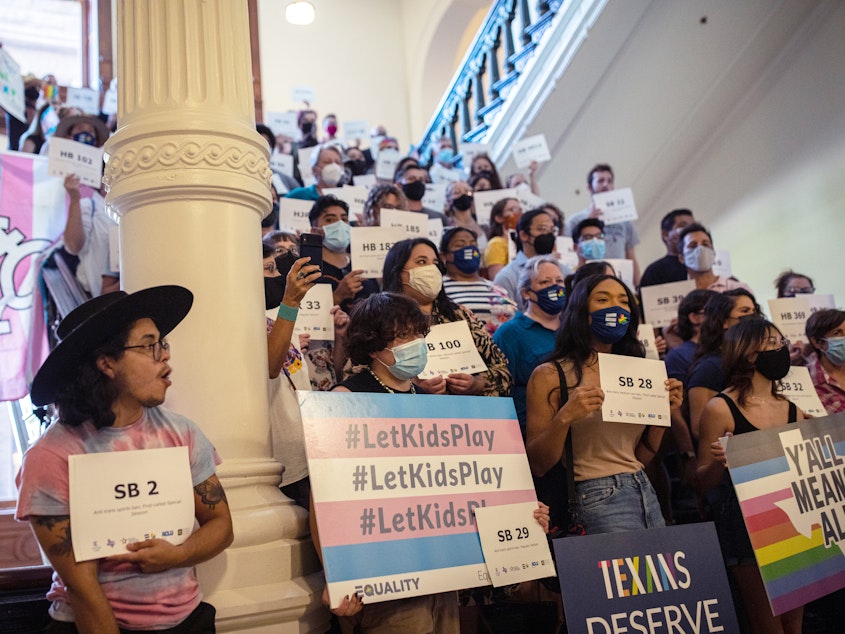Texas' new law restricts transgender athletes' participation on school sports teams

Texas is the latest state to prohibit transgender youth from playing on sports teams that align with their gender identity.
Gov. Greg Abbott signed House Bill 25 into law on Monday. It requires public school students compete in interscholastic athlete competitions based solely on their assigned sex at birth, and takes effect on Jan. 18.
The law says that K-12 students who participate in interscholastic competition can only play on teams in accordance with the sex listed on their official birth certificate — which is defined as the one issued at or near the time of their birth and may not correspond with their gender identity.
It applies to all teams "sponsored or authorized" by a school district or open-enrollment charter school, and charges the University Interscholastic League — which governs athletic contests in the state's public primary and secondary schools — with implementing the same rules.
It goes further than existing UIL rules, which require students participating in high school sports to do so in accordance with the sex listed on their birth certificates but accepts amended birth certificates. (Critics of that policy, which was implemented in 2016, say it forces students to go through the time-intensive and potentially costly process of changing their birth certificates in order to play.)
Sponsored
The text of the bill says that it aims to "further the governmental interest of ensuring that sufficient interscholastic athletic opportunities remain available for girls to remedy past discrimination on the basis of sex."
Lawmakers have debated several versions of the measure since January, and it polls well with the highly conservative voters that Abbott is courting ahead of his 2022 reelection campaign.
What science says about fairness
Supporters of the bill say they believe it will prevent trans athletes — and specifically trans girls — from having an unfair advantage when they compete against cisgender students, as Texas Public Radio reports.
That's not based in science, as one researcher told NPR this spring.
Sponsored
"We know that men have, on average, an advantage in performance in athletics of about 10% to 12% over women, which the sports authorities have attributed to differences in levels of a male hormone called testosterone," said geneticist and pediatrician Dr. Eric Vilain.
"But the question is whether there is, in real life, during actual competitions, an advantage of performance linked to this male hormone and whether trans athletes are systematically winning all competitions. The answer to this latter question, are trans athletes winning everything, is simple — that's not the case."
Opponents are slamming the bill for targeting trans athletes and limiting their opportunities.
"This law will further harm the very kids who need support from their peers and teachers," LGBTQ organization GLAAD tweeted. "It's unnecessary and shameful to target children who just want to grow up in peace and be themselves, like any other kid."
Amit Paley, CEO and executive director of the Trevor Project, said on Twitter that the nonprofit organization is available for 24/7 support and will keep working with its partners to challenge the law.
Sponsored
In a statement, the Trevor Project criticized the law as an attack on trans and nonbinary youth, who are already at higher risk for mental health challenges and suicidal ideation compared with their peers.
It noted that the bill also comes during a year when Texas lawmakers have proposed nearly 70 "anti-LGBTQ bills," including more than 40 bills targeting transgender and nonbinary youth — the most of any state.
In recent years, dozens of state legislators across the country have introduced bills that would limit or prohibit transgender women from competing in women's athletics. ESPN keeps this list of where various states stand.
The NCAA Board of Governors, which oversees the main governing body for college sports, said in an April statement that it "firmly and unequivocally supports the opportunity for transgender student-athletes to compete in college sports," and will only hold NCAA championships in locations that can provide a respectful and welcoming environment. [Copyright 2021 NPR]



